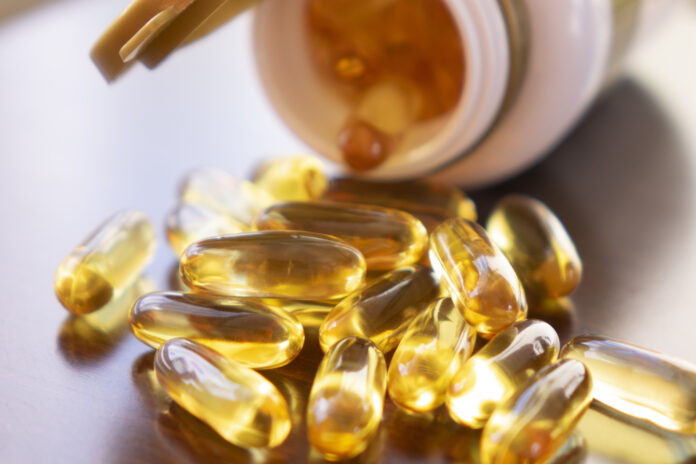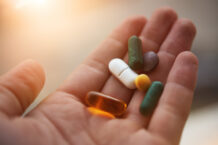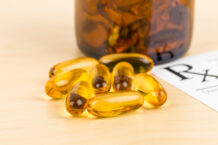What is a dietary supplement? By definition, it is a substance taken by mouth in whatever form (gel, capsule, tablet, powder, and so on), but is not a food. It can contain a vitamin, mineral, herb, amino acid, hormone, plant extract, or practically anything. It is called a supplement because it is supposed to provide something your diet does not supply in sufficient quantity. The range of ingredients and formulations is enormous. You can buy supplements almost anywhere, and you don’t need a prescription. There are some legal limits to the claims that can be made on labels of dietary supplements, but in their advertising and especially on the Internet, many products go beyond these limits and claim medicinal and therapeutic effects.
Polls and surveys show that most consumers have little idea what the rules of the game are. Here are some myths most people believe:
• Supplements are regulated like drugs, and the claims made in ads and on labels are held to a standard of truth and accountability.
• If the label says a supplement contains certain amounts of various ingredients, you can trust it.
• If it is on the drugstore shelf, that means the U.S. Food and Drug Administration (FDA) has approved it.
• The government requires supplements to carry warning labels about potential side effects, and like prescription drugs, supplements can be quickly taken off the market if they cause serious adverse effects.
• The word “natural” on a label means the product is safe.
• When it comes to vitamins, minerals, herbs, and other supplements, if a little is good, more will be better.
Unfortunately, all these statements are false.
If you’re taking medication and also take an herbal or other kind of supplement, tell your doctor and/or pharmacist what you take and ask about possible interactions.
A wide range of supplements, including garlic, ginkgo, dong quai, and licorice root, can boost the effect of such drugs as warfarin (Coumadin), thus increasing the risk of bleeding. On the other hand, supplements such as vitamin K and ginseng reduce warfarin’s blood-thinning effect. Many other drugs may also have interactions with supplements.
In addition, if you take supplements, especially herbal ones, and are about to have surgery, talk to your doctor about whether you should stop taking them, since they can cause complications—just as prescription and over-the-counter drugs can. Possible problems range from excessive bleeding to interaction with anesthetics. Your doctor may recommend stopping certain medications and supplements a week or even more before surgery. If surgery must be scheduled sooner, show all herbal products (in their packages) to your doctor beforehand.
Pharmaceutical drugs, both prescription and nonprescription, are strictly regulated by the FDA. Drugs must be tested for efficacy and safety before they are sold; potentially harmful side effects must be plainly stated. Drugs must contain what the label says they contain. Generics must meet the same strict equivalency standards as brand-name drugs. Inspections enforce these rules. Yet even all these safeguards don’t prevent some dangerous drugs from getting to market. Pharmaceutical companies have long been required to keep track of and report “adverse events” to the FDA so drugs can be withdrawn quickly from the market, if necessary.
In contrast, supplement manufacturers do not have to prove the safety and efficacy of products they want to market; they simply send the FDA a copy of the labels they plan to use. It remains the responsibility of the government (using taxpayers’ money) to demonstrate harm and remove dangerous supplements from the market. Predictably, this has proved hard to do. The task is formidable, and the FDA’s supplements division is underfunded and understaffed. Some members of Congress have been hostile to any proposal to increase the regulation of supplements. Powerful lobbies support the supplements industry.
If you take herbal supplements, you may be getting more—or less—than you bargained for. In a 2014 Canadian study in BMC Medicine, DNA analysis of 44 herbal products found that most contained cheaper substitute species, contaminants, and/or fillers. Nearly 60 percent contained plant species not listed on the labels. For instance, one product labeled St. John’s wort instead contained Senna alexandrina, which can cause diarrhea, as well as colon damage if taken long term. More than 20 percent had unlabeled fillers such as rice, soybeans, and wheat, which can be a concern for people allergic to these foods.
Over the years studies have found that many dietary supplements are inaccurately labeled, but herbs are a special problem due to their complex chemistry and the difficulty in standardizing them. As a result, herbal supplements are “prone to contamination and possible product
substitution,” the researchers said. Adulteration appears to be a persistent problem with imported botanicals.
In 2015, the New York Attorney General announced that DNA tests (barcoding) done for his office had found that 79% of herbal products contained little or none of the labeled substance—and often had inexpensive filler instead. Thus, he issued cease-and-desist letters to major retailers selling the products, announced that his investigation would continue, and called for stricter FDA oversight; several other attorneys general later joined in the probe. In response, industry experts said that such DNA testing is inappropriate for botanical products.
The extent of the problem is still not known. Meanwhile, the probe led the industry to call for increased FDA enforcement of existing laws as well as increased self-policing for adulterated products.
Building a case against a dangerous supplement can take years. For instance, it took a decade for the FDA to ban the herb ephedra, the active ingredient in many weight-loss products as well as in supplements claiming to enhance athletic performance. Back in 2003, a 23-year-old baseball player, Steve Bechler, died after taking ephedra. It turned out that one manufacturer, Metabolife, had received more than 14,000 complaints of adverse events from ephedra, but had not reported them to the FDA. In 2004, having concluded that ephedra users are at risk for heart attack, stroke, and sudden death, the FDA announced a ban. However, a number of stimulant compounds (such as bitter orange extract) that took the place of ephedra may cause some of the same problems.
Since 2007, supplement manufacturers have been required to inform the FDA about serious adverse events. Apparently, a relatively small number of problems have been reported, and it’s not clear how well this system is working.
Though dietary supplements are required to carry a disclaimer saying (usually in tiny type) that the FDA has not evaluated the products or their claims, a 2015 research review published in Health Affairs found that many consumers either do not notice the disclaimer or disregard it.







